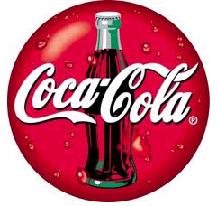Tax rules
Coca-Cola chief criticises US tax rules
 Coca-Cola now sees the US becoming a less friendly business environment than China, its chief executive has revealed, citing political gridlock and an antiquated tax structure as reasons its home market has become less competitive.
Coca-Cola now sees the US becoming a less friendly business environment than China, its chief executive has revealed, citing political gridlock and an antiquated tax structure as reasons its home market has become less competitive.
Muhtar Kent, Coke's chief executive, said "in many respects" it was easier doing business in China, which he likened to a well-managed company. "You have a one-stop shop in terms of the Chinese foreign investment agency and local governments are fighting for investment with each other," he told the Financial Times.
Mr Kent also pointed to Brazil as an example of an emerging economy that is making itself attractive to investment in ways that the US once did.
"They're learning very fast, these countries," he said. "In the west, we're forgetting what really worked 20 years ago. In China and other markets around the world, you see the kind of attention to detail about how business works and how business creates employment."
Mr Kent argued that US states did not compete enough with each other to attract businesses while Chinese provinces were clamouring to draw investment from international companies. Meanwhile, he said, China's budget discipline and rapid economic growth made it an appealing place to set up operations.
China now accounts for 7% of Coke's global sales volume and in the first half of this year it sold more than 1bn cases of its products in China, doubling the rate of its sales there five years ago. Although Coke does not report its profits by country, China represents about 6% of Coke's annual operating profits, according to analysts at Bernstein Research. The US, meanwhile, accounts for 41% of Coke's annual revenue and 19% of its operating income.
Mr Kent's remarks came a month after Coke said it was ramping up its investment in China with a $4bn investment over the next three years, and on Monday it said it would invest $3bn in Russia during the next five years. The company continues to spend domestically, with a $1.3bn investment in capital assets in North America this year.
China has not always been friendly to Coke and has recently come under fire from the US for being overly restrictive to foreign companies. Two years ago, China's ministry of commerce rejected the company's proposed $2.4bn acquisition of Huiyuan, the country's leading juice maker, on grounds that the deal would hurt small domestic companies and leave consumers with limited options.
Last week, Gary Locke, the new US ambassador to China, criticised the country for undervaluing its currency and for not sufficiently cracking down on intellectual property theft, arguing that the business climate was causing "growing frustration".
However, Mr Kent said that US tax burdens and political polarisation were creating uncertainty for businesses and hurting investment.
"I believe the US owes itself to create a 21st century tax policy for individuals as well as businesses," he said.
Mr Kent, speaking on the sidelines of the Clinton Global Initiative conference, hit out specifically at US provisions that tax companies for repatriating cash earned overseas. Coke does not disclose how much cash it holds overseas.
"If you talk about an American company doing business in the world today with its Chinese, Russian, European or Japanese counterparts, of course we're disadvantaged," Mr Kent said. "A Chinese or Swiss company can do whatever its wants with those funds [earned overseas]. When we want to bring them back, we are faced with a very large tax burden."
Mr Kent said that US lawmakers, who have become stuck in political gridlock, need to be held more accountable as they debate ways to fix the economy.
"When a country is in trouble, you can't have a polarised political process," he said. "There's too much comfort. We need more needles to stick in politicians."
(Published by Financial Times - September 26, 2011)